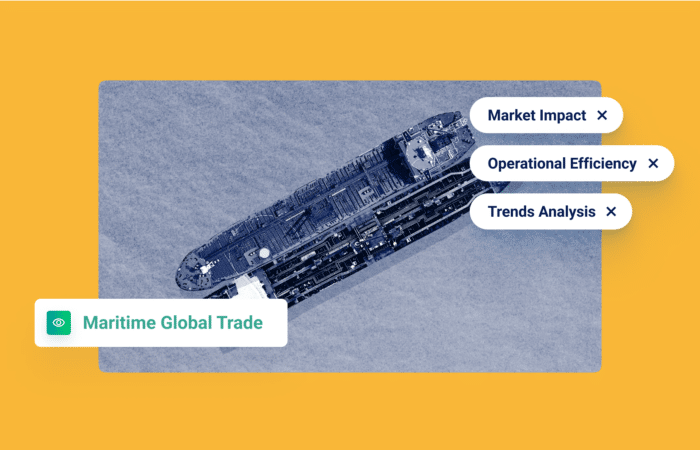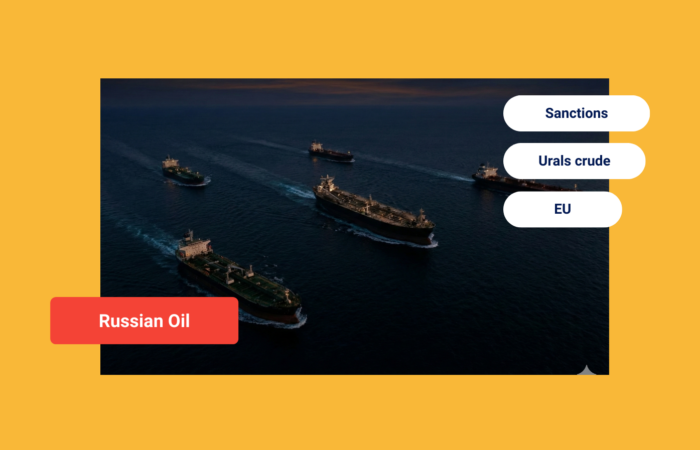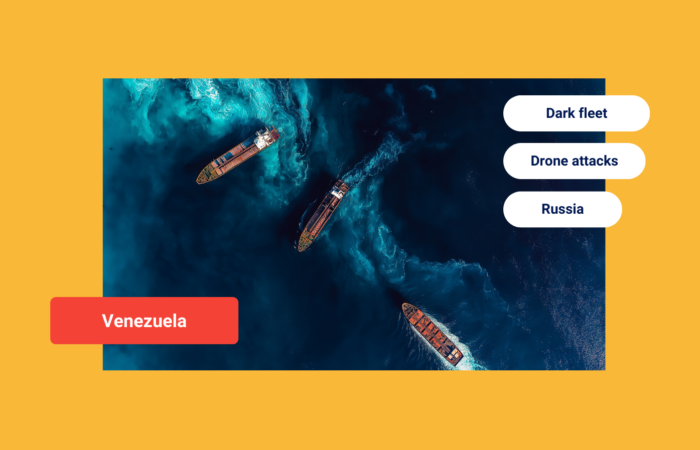Fighting false positives with domain expertise

What’s inside?
False positives are a heavy burden on business. Unfortunately, they are often simply accepted as part of the job of conducting due diligence. But there is a lot that can be done to fight false positives and boost business. When screening vessels, one of the best ways to do this is by applying domain expertise to vessel screening according to the type of commodity and the regime in question. By doing so, the system can help reduce the number of false positives and prioritize the ones that point to the higher risks.
This is why we set out to research these aspects and applied domain knowledge to minimize the amount of high risk vessels and enable more business opportunities for our partners.
The state of compliance today
Before we get there, it’s important to first cover how sanctions screening is traditionally done. For most companies, due diligence begins with name screening. Name screening software compares a country, vessel, or counterparty against lists of sanctioned territories and persons. For vessels, that often includes checking for signs of high risk behavior such as voyages to or near sanctioned ports. Spotting the name of a sanctioned country, person, or vessel is just the start.
Given the variety of sanctions out there, companies also need to think of each sanction’s purpose and how (if at all) it applies to their business. This is especially true as countries roll out new kinds of “targeted” sanctions. Take for example Venezuela. The US government currently maintains “blocking sanctions” against the Government of Venezuela and Venezuelan state-owned entities. These sanctions prohibit US persons from engaging in most transactions with their targets. OFAC has also sanctioned numerous shipping companies and vessels (including some based in the EU) for helping to export Venezuelan petroleum.
But the sanctions do not apply to the territory of Venezuela as a whole, and many activities are still permitted. It follows that not every vessel that has a history of stopping at Venezuelan ports carries the same risk. A fully loaded petroleum tanker carrying crude oil from a state-owned company is one thing. A container ship carrying agricultural goods and medicine is another.
The update
Flagging false positives is often a result of incorrectly evaluating commodities and regimes. Each one is unique in its relevance to sanctions compliance risk. Our latest update to our platform takes this into consideration. This new step in our logic adjusts the current risk assessment of activities by taking into account a vessel’s relevance to sanctions evasion based on two parameters.
The subclass, which defines what type of commodity/service the vessel is prone to be involved in, and the regime, which defines the relevance of the activity under sanctions. For example, a tugboat loitering in Iran is less relevant to potential sanctions evasion than an oil tanker exhibiting the same behavior. If an event like this was in the past considered high-risk, it would be adjusted to a lower risk level.
Impact
Overall this change is another step in our mission to decrease false positives. This upgrade will immediately decrease the risk score of around 1,000 vessels. These vessels represent roughly 0.8% of the world IMO fleet, with a majority of cargo and tanker vessels. Changing the risks of these vessels, means 1,000 more vessels are potentially available for business depending on the user’s own risk tolerance. We are the only maritime technology company that is classifying commodities/regimes at the moment—made possible thanks to our deep understanding of the maritime risk landscape and the behavioral analysis of vessels.
False positives stand in the way of growth and business. Our mission has always been to remove barriers for our customers, so they can confidently navigate the shipping industry – a challenge big enough on its own. To learn more about our latest compliance risk update and how it can help you curb false positives, contact us below.
This blog includes information contributed by Nick Turner, Of Counsel at Steptoe & Johnson Hong Kong.
Trending
- The EU’s 18th Sanctions Package Lookback Started. Trading Russian Products? You're At Risk. Nov 24, 2025
- Tanker Freight Rates Hit Five-Year High Amid Russian Oil Sanctions Shake-Out Nov 6, 2025
- Sanctioned, Stateless, and Still Sailing: Expert Insights from the Frontlines of Maritime Sanctions Nov 3, 2025











